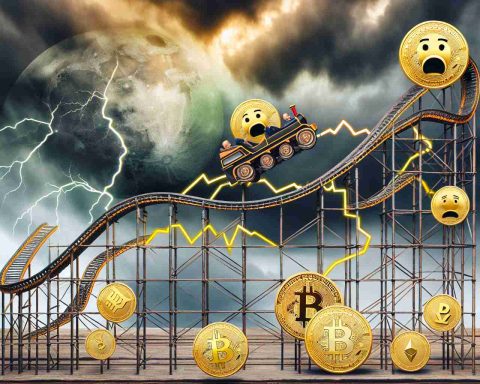Understanding Current Mortgage Landscape
As potential homebuyers and those contemplating refinancing turn their attention to the mortgage market, the rate fluctuations become increasingly significant. On January 25, 2025, the average interest rate for a 30-year fixed mortgage rests at around 7.01%, a slight decline of 10 basis points from the previous week.
This downward trend in rates may open doors for many first-time buyers and those seeking a refinance. Currently, the average refinance rate matches the fixed rate at 7.01%, while the 15-year fixed refinance rate stands at 6.26%. Competitive rates can lead borrowers to potentially save about $1,725 annually on a standard mortgage of $340,000.
Recent analyses point to a stabilization in mortgage rates after considerable volatility. Economic indicators such as inflation control expectations and lender competition contribute to this positive shift in the market.
A crucial aspect of securing the best mortgage involves comparison shopping. Minor differences in rates can equate to substantial savings over time, potentially amounting to thousands over the life of a loan.
Looking ahead, experts predict rates may stabilize around the mid-6% range this year. This presents a promising scenario for both prospective homebuyers and current homeowners considering refinancing options to optimize their financial strategies. Staying informed is vital in this ever-evolving market.
Implications of the Mortgage Market Trends
The current trends in the mortgage market extend far beyond individual financial decisions, carrying significant ramifications for society and the global economy. As the average interest rates settle around 7.01%, the ability for first-time buyers to enter the housing market becomes more accessible, potentially invigorating a sector critical to economic growth. The surge in home purchases can stimulate ancillary industries, from home improvement to real estate services, creating a ripple effect beneficial for employment and consumer spending.
Moreover, stabilized mortgage rates can enhance housing market confidence. Consumers who feel secure in their financial choices are more likely to engage in significant economic activities, leading to broader economic stability. This newfound enthusiasm can also impact urban development and infrastructure investments as local governments often reap the benefits of increased property taxes from rising home values.
However, the environmental implications should not be overlooked. As the housing market strengthens, there may be pressure to develop land and increase housing density, potentially impacting green spaces and local ecosystems. The rise of new mortgages may spur a trend toward more sustainable building practices, as consumers and developers alike seek eco-friendly homes.
In conclusion, while the effects of current mortgage rates are most immediately felt in personal financial portfolios, their influence permeates societal structures and environmental considerations, marking a critical juncture for future trends in housing and economic health.
Unlocking Homeownership: Navigating the Mortgage Market in 2025
Understanding Current Mortgage Landscape
As potential homebuyers and those contemplating refinancing shift their focus to the dynamic mortgage market, interest rate fluctuations are becoming increasingly crucial. As of January 25, 2025, the average interest rate for a 30-year fixed mortgage stands at approximately 7.01%, reflecting a slight decline of 10 basis points from the previous week.
This decrease in rates creates new opportunities for first-time buyers and those looking to refinance. Currently, refinance rates align with fixed rates at 7.01%, while the 15-year fixed refinance rate is at 6.26%. Borrowers can potentially save around $1,725 annually on a standard mortgage of $340,000 based on these competitive rates.
Key Factors Influencing the Market
Recent analyses suggest that mortgage rates are stabilizing after a period of significant volatility. Influencing factors include:
– Economic Indicators: Ongoing inflation control measures are helping to stabilize expectations around mortgage rates.
– Lender Competition: Increased competition among lenders prompts more attractive offers, benefitting borrowers.
Shopping for the Best Mortgage
A critical method for securing the most favorable mortgage involves diligent comparison shopping. Even minor differences in interest rates can result in substantial savings over time—potentially tens of thousands of dollars over the life of a loan.
Future Predictions
Experts anticipate that rates may stabilize around the mid-6% range throughout this year. This prediction holds promise for both prospective homebuyers and existing homeowners considering refinancing options to enhance their financial strategies. Staying informed about these trends is essential in this fluid market landscape.
Limitations and Considerations
While lower rates can provide immediate financial relief, potential buyers should also consider:
– Loan Approval: Qualification standards can affect access to lower rates.
– Market Volatility: Economic shifts can rapidly alter mortgage rates.
– Long-Term Planning: Shorter-term loans may offer better rates but require larger monthly payments.
FAQs about the Current Mortgage Market
Q: How can I find the best mortgage rates?
A: Consider using mortgage rate comparison websites, consulting with local lenders, and assessing your credit score to find competitive rates suited to your profile.
Q: What are the benefits of refinancing my mortgage?
A: Refinancing can lead to lower monthly payments, reduced interest rates, or even access to equity for home improvements or debt consolidation.
Q: Will mortgage rates continue to decrease?
A: While some experts predict stabilization around the mid-6% range, market conditions can be unpredictable. Staying informed and flexible with your mortgage strategy is key.
Conclusion
As the mortgage landscape continues to evolve in 2025, understanding the influences at play and actively comparing rates empowers buyers and homeowners alike. This knowledge equips potential borrowers to optimize their financial outcomes, making informed decisions in an uncertain economic climate. For more insights into mortgage trends, visit Mortgage Bankers Association.










